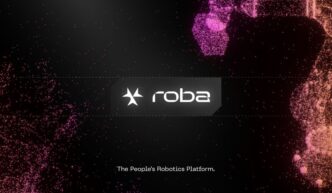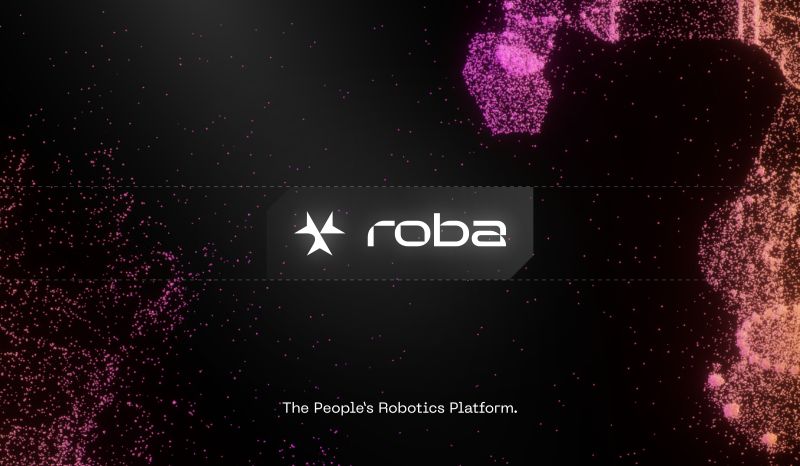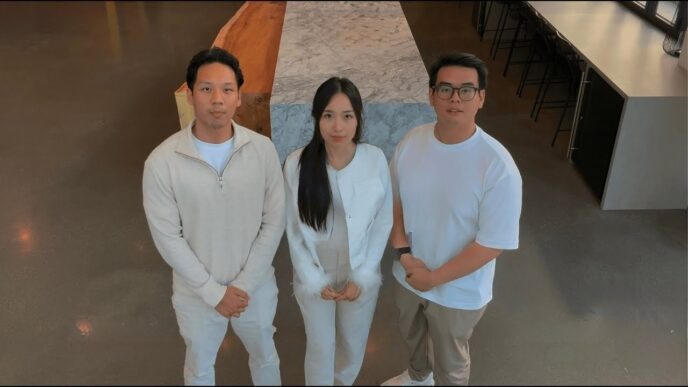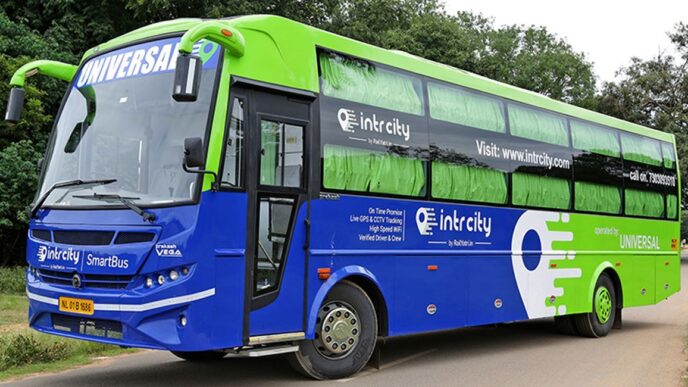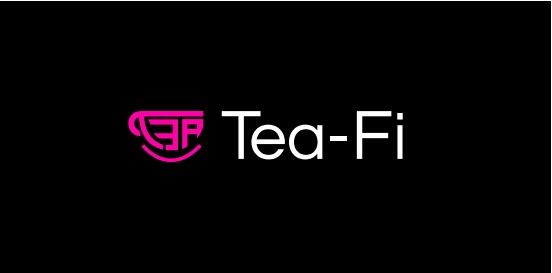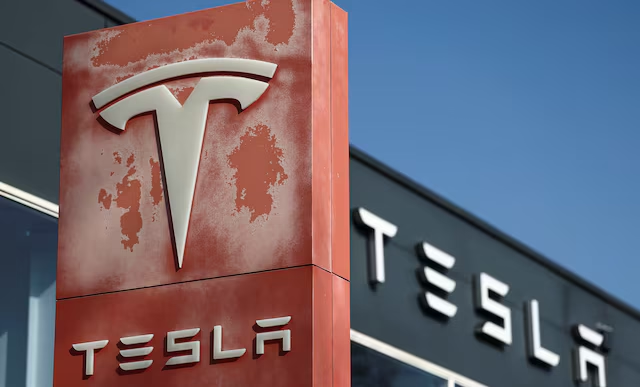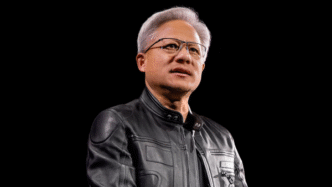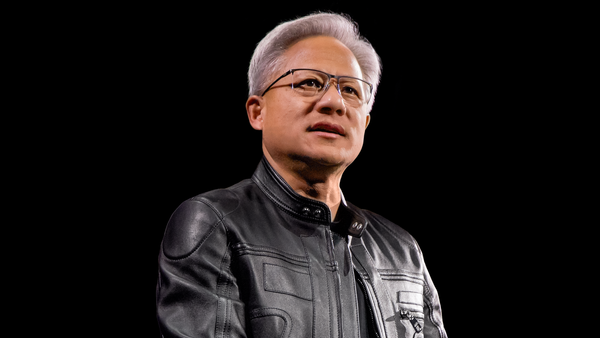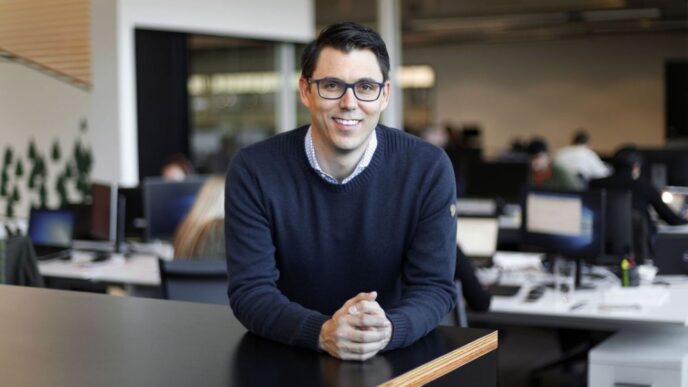ROBA Labs, a Dubai-based startup, has officially launched what it calls “The People’s Robotics Platform,” a bold step toward transforming how robots are built, shared, and monetized. The company is positioning itself as the “Hugging Face of Robotics,” offering an open and interoperable AI robotics platform designed to tear down the barriers of closed, corporate-controlled systems that have long limited innovation in the robotics industry.
The launch comes at a pivotal moment for a market projected to surpass $218 billion by 2030. ROBA’s mission is to democratize robotics by giving creators full ownership of their data, assets, and revenue. Instead of relying on ten or more fragmented tools to build one robot, the platform unifies the entire process into one seamless experience where anyone can build, train, share, and monetize robotics projects—all without coding knowledge.
At the heart of ROBA’s innovation is a deep belief in openness and accessibility. The startup’s founder, Farid Hossain, saw first-hand how difficult it was to develop intelligent systems across multiple disconnected platforms. This frustration inspired him to create ROBA, a single ecosystem where intelligent robots can learn, adapt, and connect through AI and blockchain technology. “It was very challenging to build an intelligent system,” Hossain explained. “We’re solving that by creating a unified platform that makes robot creation simpler, faster, and more accessible.”
ROBA’s system is built around what the company calls the “Unified Workflow”, a streamlined process where creators can build their robots, train them in advanced simulations, share their assets with a global community, and monetize their work through decentralized incentives. The platform’s foundation is made up of two key tools. The first, ROBA Studio, provides everything from data and AI frameworks to simulation environments within a single, intuitive graphical interface. The second, the ROBA Creator Hub, acts as a marketplace for robotics assets, models, and environments, creating a thriving ecosystem for collaboration and discovery.
A major breakthrough in ROBA’s ecosystem is ROBA Link, a connective layer that aggregates third-party tools, SDKs, and APIs into one interface. This means developers no longer have to juggle multiple systems to bring a robot to life. Through its agentic no-code integration, ROBA Link enhances the developer experience and allows seamless transitions between simulation, testing, and deployment.
ROBA’s philosophy isn’t just about open technology, it’s about building a fair and sustainable robotics economy. The company introduces its native $ROBA token, which powers transactions, rewards creators, and governs the platform through RobaDAO. This system allows contributors to earn automated royalties when their assets are used by others. For example, a student can upload a drone template, and a startup can license it, with both parties receiving token rewards. Around 30% of the $ROBA supply is dedicated to ecosystem incentives, ensuring creators are continuously compensated.
This community-first approach has earned ROBA the nickname “the App Store for robots,” where contributors are not just participants but stakeholders in the platform’s success. The company aims to make robotics accessible to everyone, from students and hobbyists to startups and industrial developers, without sacrificing ownership or innovation.
ROBA Labs is backed by strong partners and investors that recognize its potential to reshape the robotics industry. The company was incubated by NextWave Incubator, known for helping deeptech startups scale globally, and has secured strategic backing from Cogitent Ventures. ROBA’s initial raise of $300,000 at a $3 million valuation provides a solid foundation for its expansion.
Its leadership team brings together deep robotics expertise and enterprise experience, with Interim CEO Sascha Reining, formerly of Accenture, leading large-scale automation projects worth over $100 million. The advisory board includes a Siemens Innovation Lead specializing in industrial automation and a former Oculus/Meta Robotics Lead with expertise in AR, VR, and robotics integration.
Looking ahead, ROBA’s long-term vision, what it calls “Design-to-Doorstep Robotics”, is even more ambitious. The company imagines a future where anyone can customize a robot’s physical design, build its “brain” in ROBA Studio, and have it shipped as a fully functional, ready-to-use robot. This concept merges AI, hardware, and manufacturing into a consumer-friendly process, turning robotics into something as personal and accessible as smartphones are today.
ROBA Labs sees its platform as more than a tool, it’s a movement toward open, collaborative innovation. The startup believes that human robotics will soon outpace even the automotive industry, and it intends to lead that wave by breaking down barriers, promoting decentralization, and rewarding creativity. By empowering developers and users alike, ROBA is building not just a platform but a global ecosystem where robotics becomes a shared pursuit rather than a corporate monopoly.
As the robotics revolution accelerates, ROBA is shaping a world where anyone can create and profit from intelligent machines. Its open, AI-powered ecosystem stands as a reminder that the future of robotics doesn’t belong to a few, it belongs to everyone.
